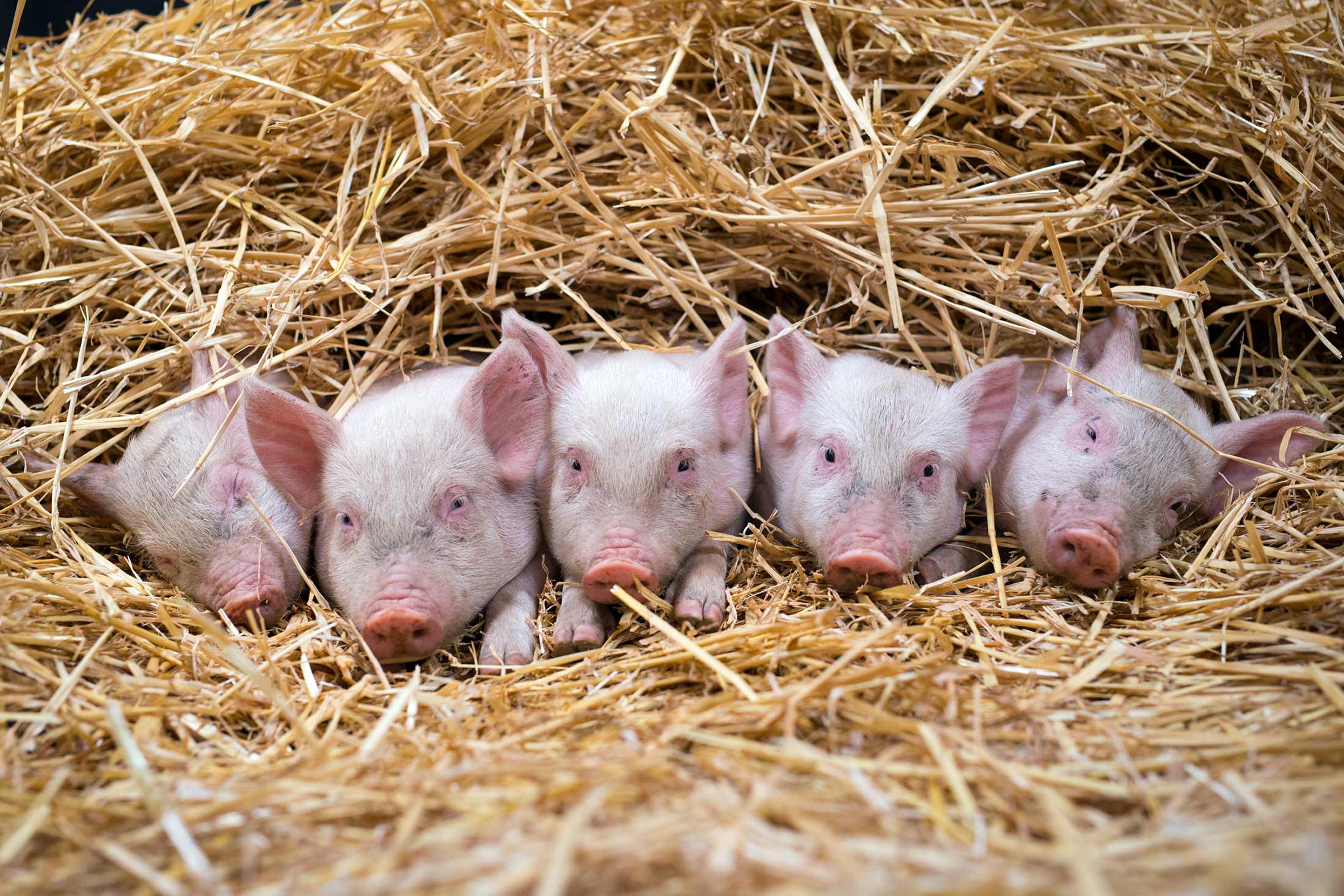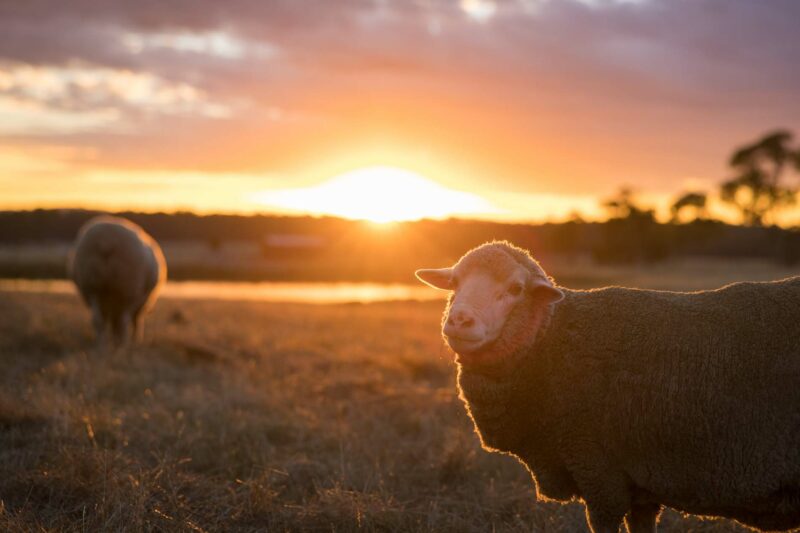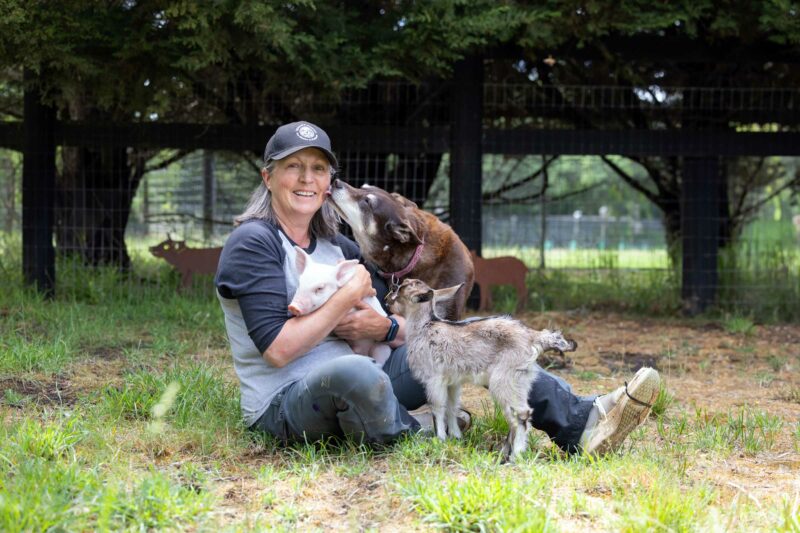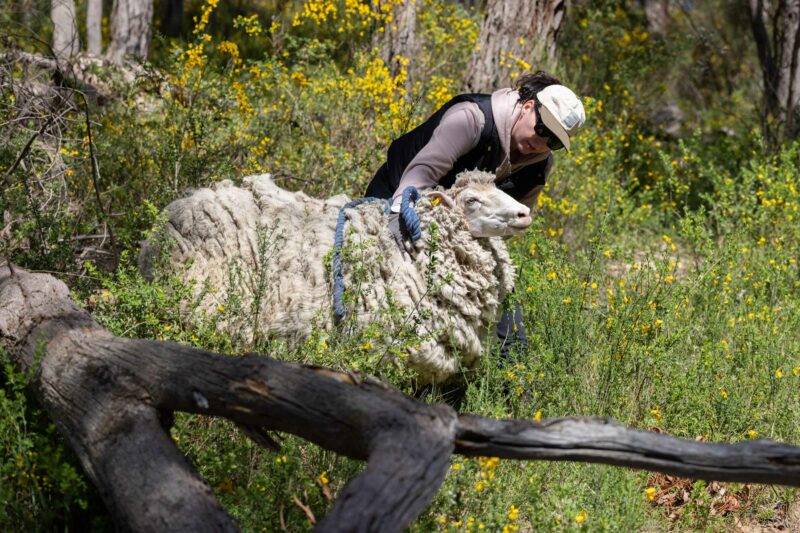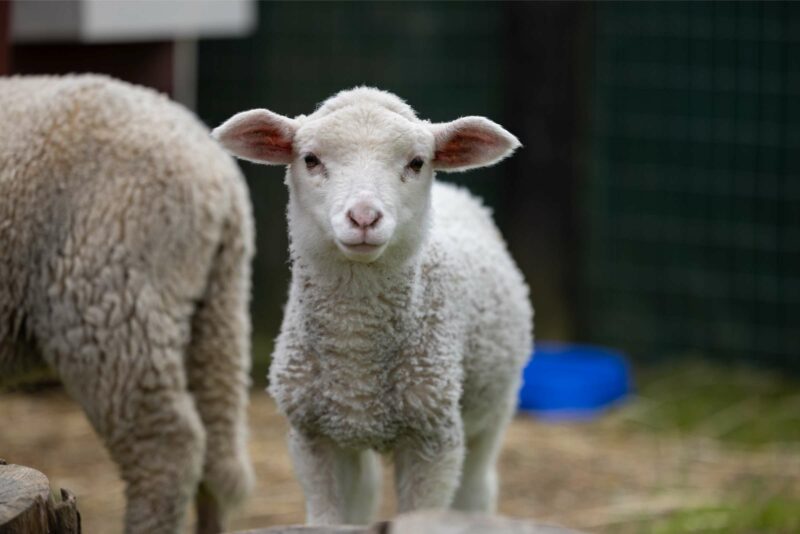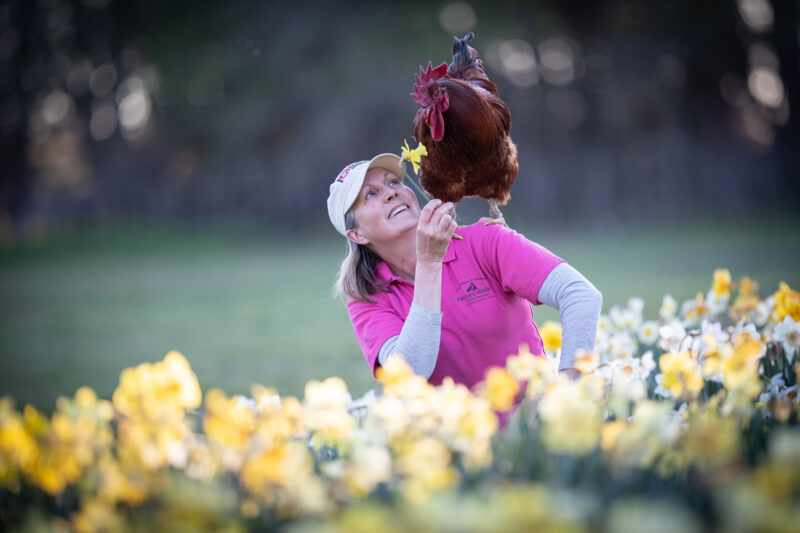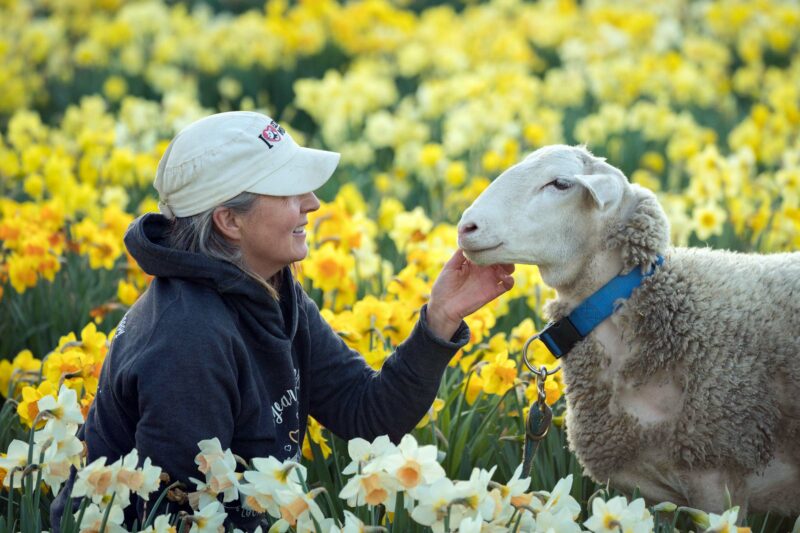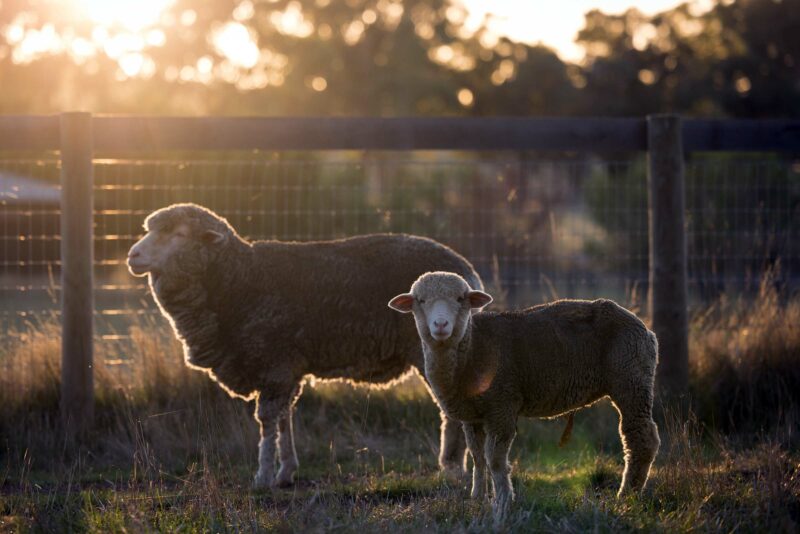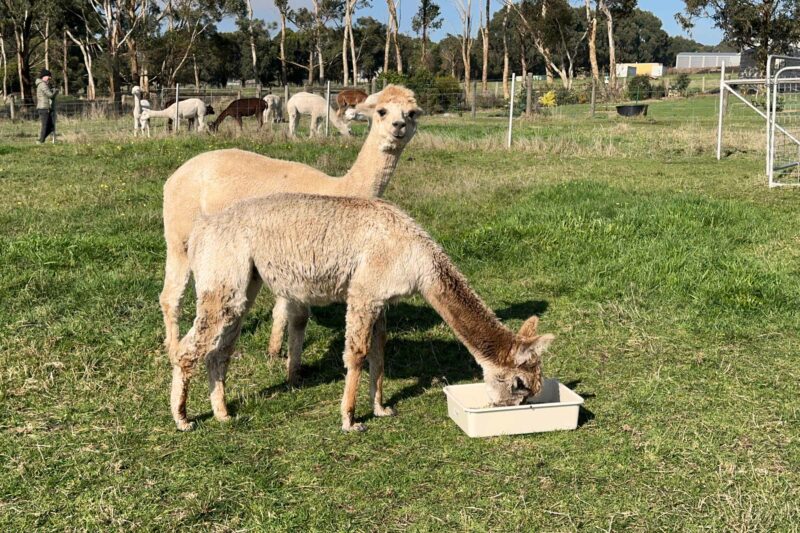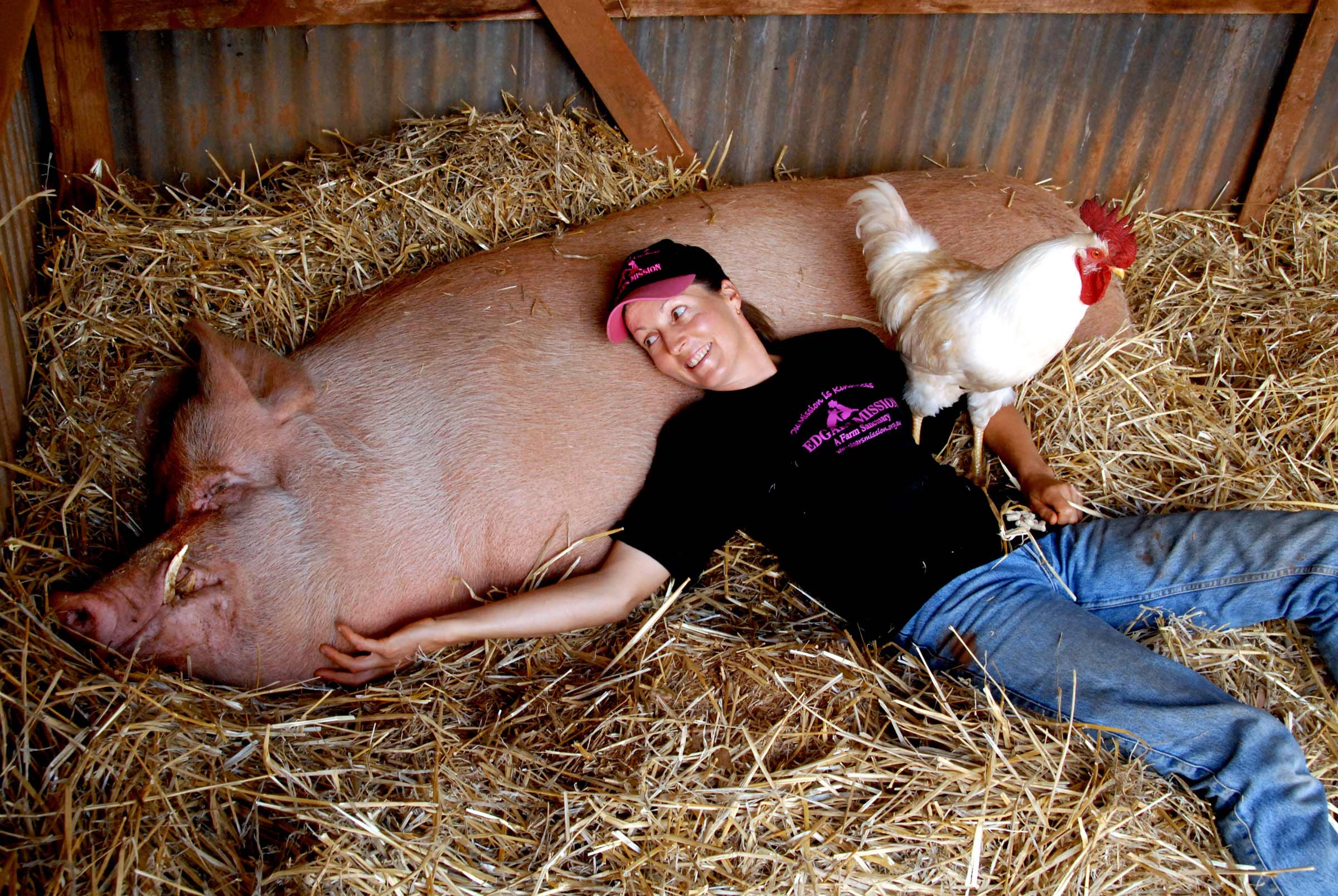
Every Joyous Moment
No doubt his amiable and gentle nature would have seen him shuffle curiously towards the slaughterman and softly sniff their hand. And with the swift upward plunge of the knife, he would have fulfilled his destiny of being born into this world for the sole reason of the dietary whim of our species.
A whim, and not a necessity, that reduces these sensitive, sentient and awe-inspiring beings to mere production units, cogs in the wheel of the worst of our humanity and one that denies them many a joyous moment.
No doubt my impromptu response delivered from the pulpit of the pavement prompted by the comment, “but if we did not eat them, they would not exist” was spurred by the many hours prior I had spent driving whilst all those treasured memories of Edgar had danced about my heart and head.
It is a comment one often hears to justify the existence of the many farmed animal species we see today. Often said with an almost innocent conviction that society is doing a community service to breed animals into existence merely to take their babies, their milk, their eggs and ultimately their lives.
But there’s something deeper that sits beyond this naïve justification, and one that we as a society must consider.
Born, as so many of us are, with a fascination for animals that was only too eager to leap out as I stroked the family cat (only one of them though, for the other was too feisty to permit this, teaching me my first of many lifelong lessons that animals are all different and one size most certainly does not fit all), or morph me into an amateur Sherlock Holmes as I crept, sleuth-like about our tiny backyard searching for insects, bugs and beetles to watch over for hours. Our loveable dog, Laddie, keeping vigil by my side, my ever-present Watson.
However, it was to be many more years before I came to put under the magnifying glass of my conscience the notion of animals experiencing joyous moments. And moreover, what this meant to those animals and the impact my diet and lifestyle choices had on their ability to experience them.
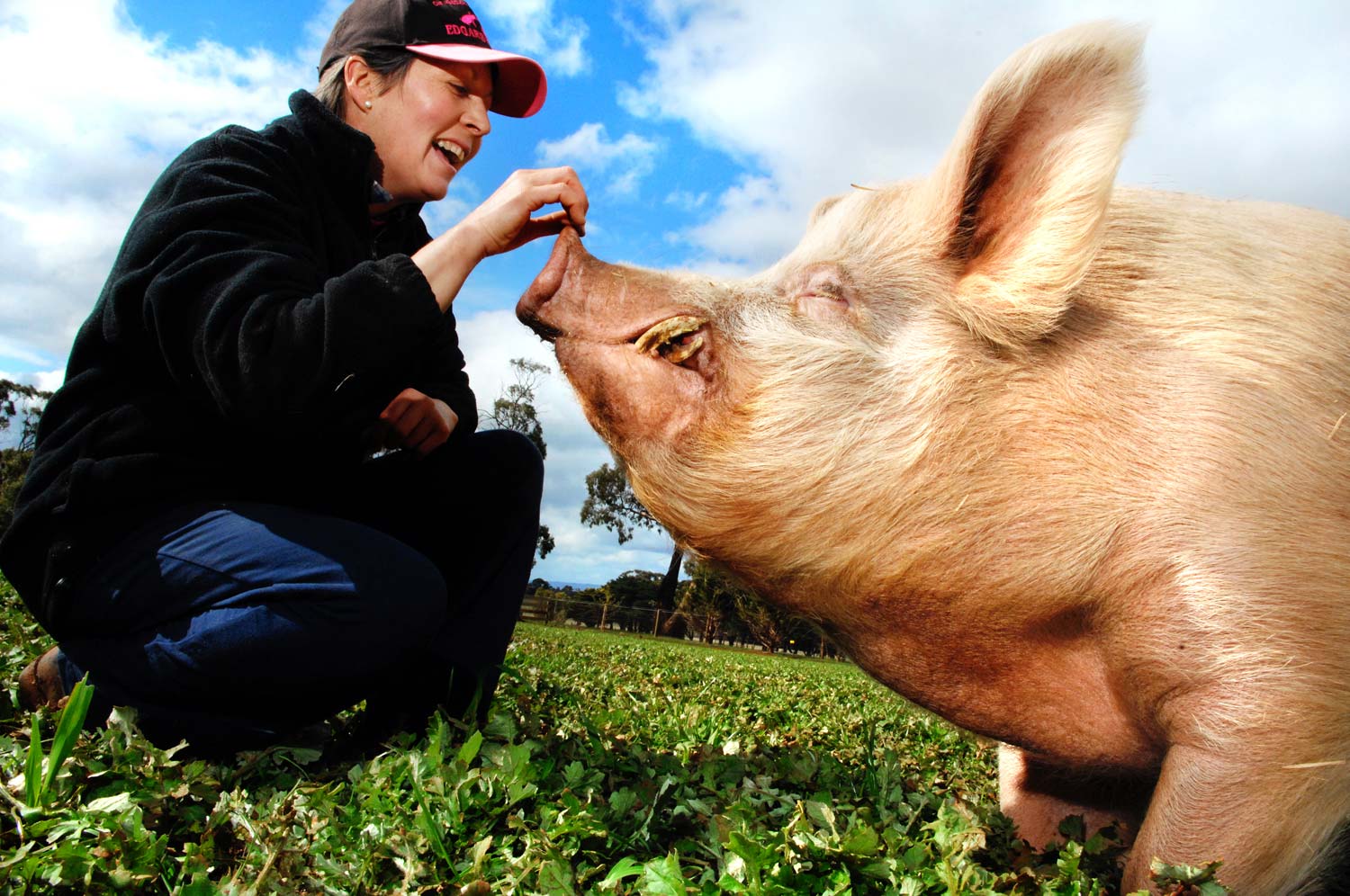
When society comes to think of domesticated animals our thoughts readily fall to the ones who have traditionally shared our hearts and homes, oblivious to the fact that the largest number of domesticated animals in human care are those who are farmed (incarcerated) for food and fibre. Those whose very number swamps into an infinitesimal amount the number of domestic pets.
That the vast majority of animal suffering and death sits beyond farm gates, industrial-like buildings and slaughterhouse walls, does not diminish the impacts of this for the very animals themselves. Nor does it our complicity in it.
To be confronted with this stark reality can indeed prove very daunting. Some turn to life changing epiphanies, some pad consciences with “humane” alternatives whilst others resort to justifications such as the one I encountered above.
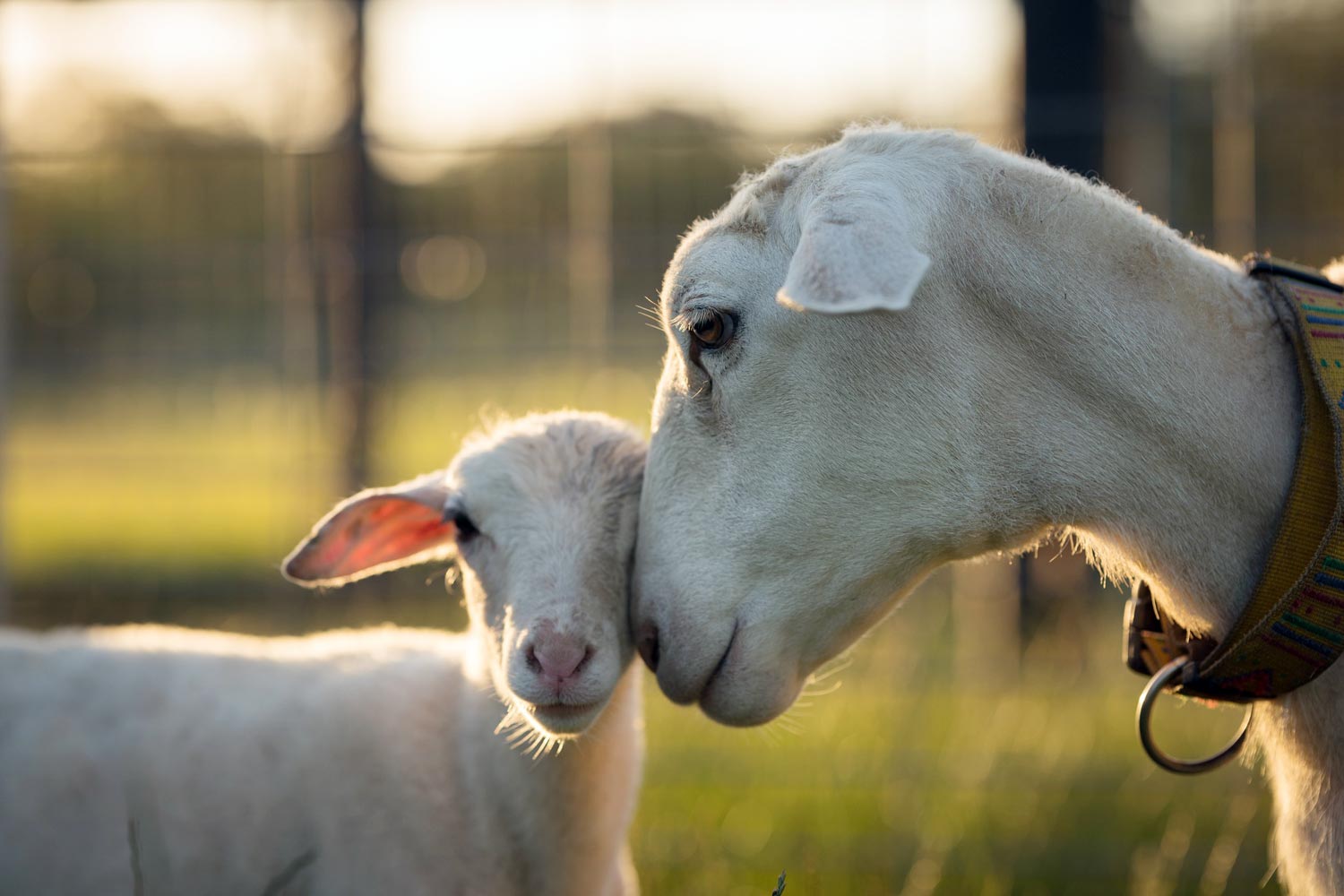
That the very nature of farming would change, is in fact a given, for the landscape of our way of our existence is in constant change as we find better, kinder, safer and more humane ways of living. Ways that reflect a growing body of ethical thought that is connecting our actions with the implications they have on others, be those others, people, animals or the planet.
Mine is not an argument to direct one what to do or not do, for I do not have, and should not have, that power. Rather, it is an invitation for one to think. To think both courageously and compassionately.
To ask oneself just what would happen in our world if compassion was to trump convenience, if we measured the intrinsic value of others against ourselves, attempting as best we could to put ourselves in the other’s shoes or even cloven hooves, and if we considered for even a moment that it is the animals’ world too.
There is no doubt we live in a compassionate society; we see this on any given day. And none more so than right now here in Victoria, with the devasting impacts of the floods, for it is indeed in these worst of times that we see the best of humanity step forward.
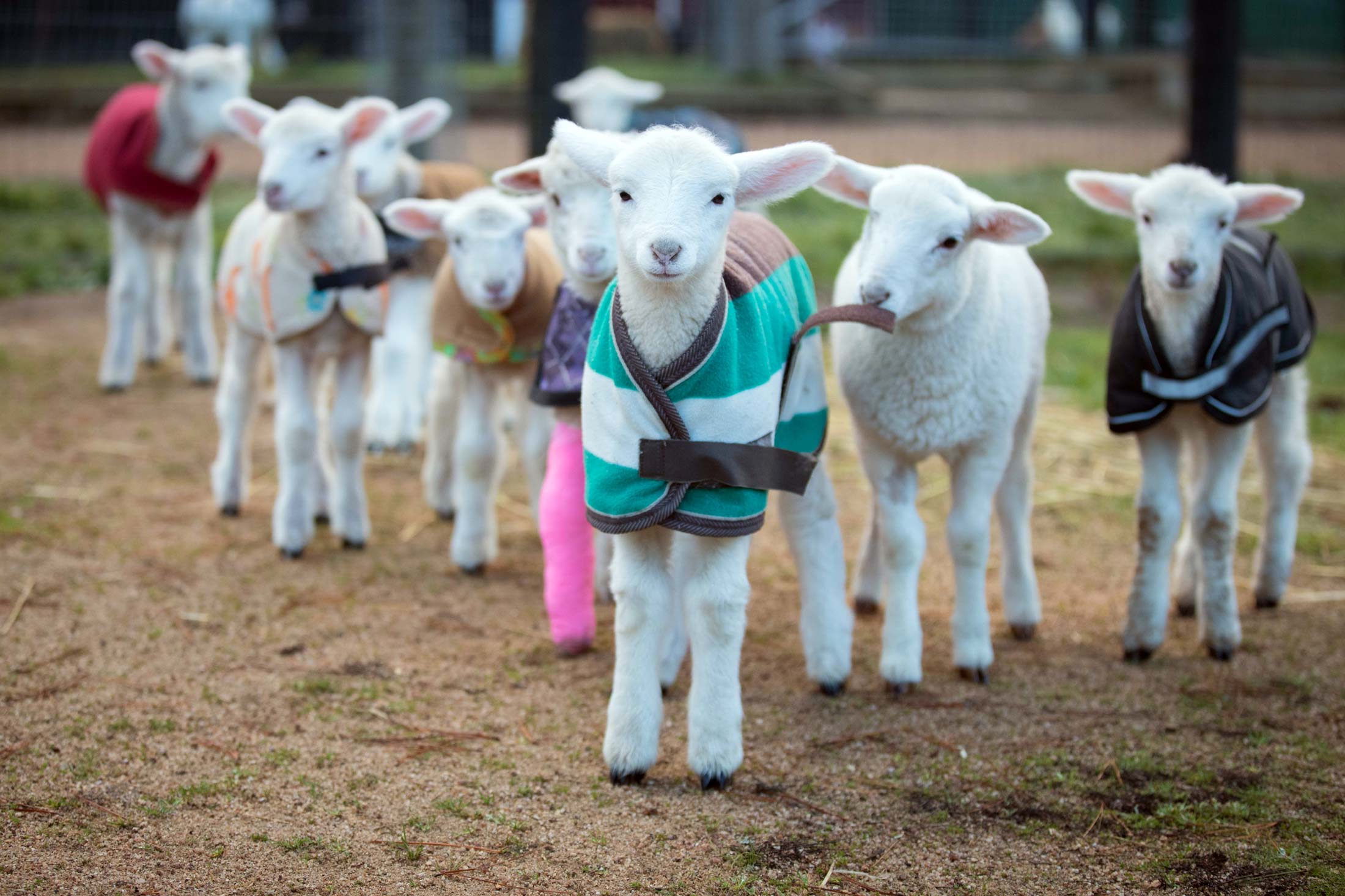
And so, circling back to my farmed animal friends and the justification of their existence.
The many species of farmed animals today are but relics of their wild ancestors, so altered in their design by human “ingenuity” (read tinkering of their genes for our ends not theirs) that many of their bodies grow so unnaturally fast, their milk or egg production so excessive, they suffer a tsunami of health issues as a result. Industries only address these if the impacts are on their profits.
And we cannot ignore that we hunted many of their ancestors out of existence and ruined their habitats along the way. Animals who were far better suited to their environments, so much so they did well surviving on their own.
Whilst many are the arguments that counter the eating of animals for the species’ survival none strikes us more readily in our country than that we do not eat cats and dogs. For this surely is something that holds great sway for those whose devotions are for our moggies and pooches. All of which more than hints that our value of animals is based on perceptions, familiarity and use, and not the animals themselves.
We know how senseless it is to breed and bring puppies and kittens into this world when shelters and rescue groups are struggling under the ever-burgeoning weight of their number, yet we bring into this world millions of male chicks and sweet doe-eyed male calves only to be slaughtered in the most gruesome and grotesque of ways at only a few days old.
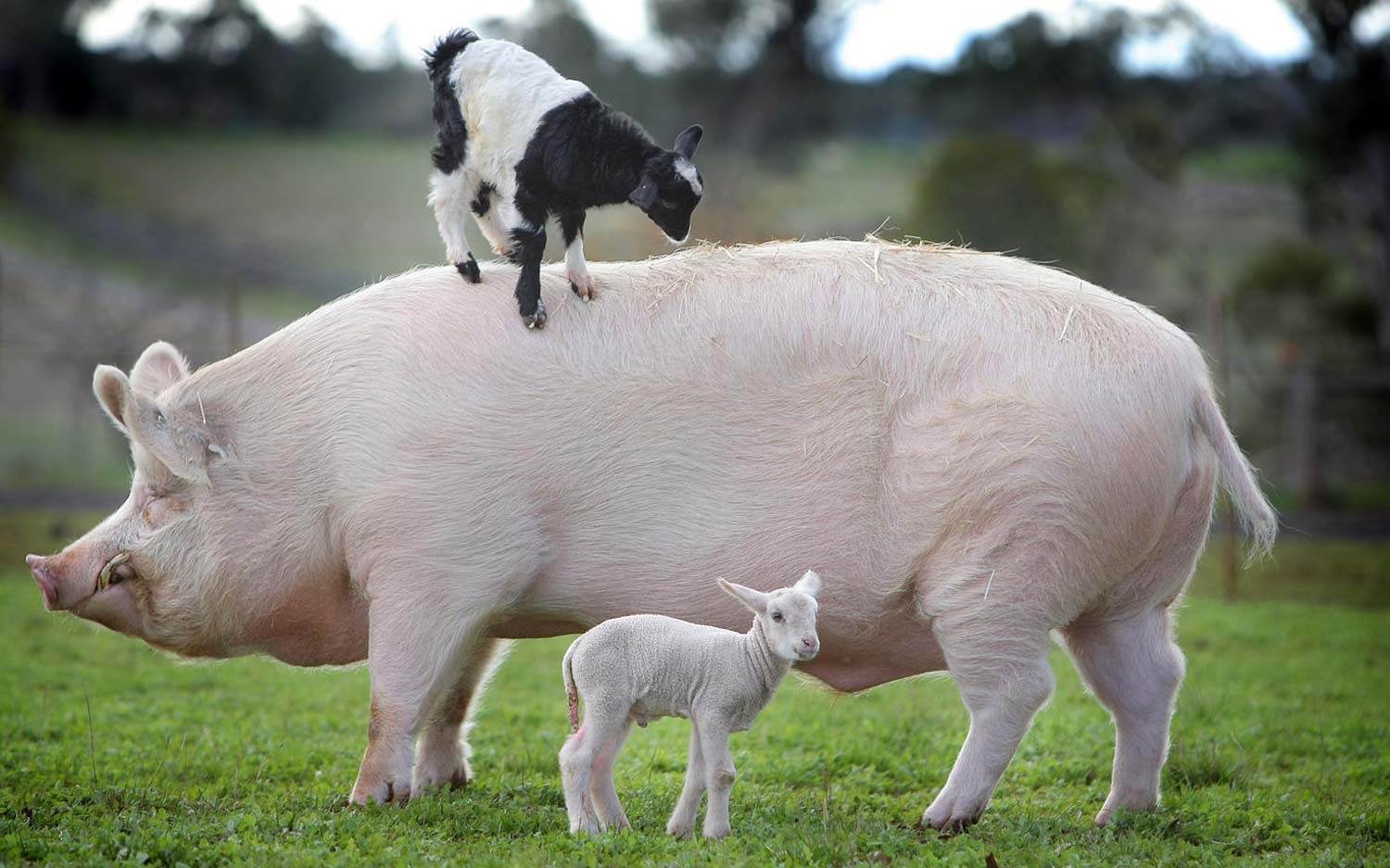
And whilst the first raises the ire of many a compassionate heart, the latter is just another day at the office for the farmed animal industry, for few beyond this sphere are even aware of this travesty.
And too we must be honest, for the fate of a farmed animal rarely ends well or naturally.
To exist in this world where one’s only purpose is to satisfy the needs of another and be at the mercy of their domination surely calls into question our way of being and our sense of justice. And when you add into this an arbitrary line in the sand, ethical thought, and animal protection laws, which determine those animals who are friends and those who are food, a most definite reboot of our way of living is called for.
And whilst we cannot turn back the clock on what we have done to animals, we can move our hands and hearts ethically forward to create a kinder, more just and fairer world for all.
So make no mistake, this is not a story without hope; in fact we have so many reasons to be hopeful, not the least of which is humanity’s indomitable spirit of kindness and incredible creativity.
For there is no doubt that our hearts and minds are ever evolving, that is where the future of all species lies, and where we shall find a solution to ending animal cruelty and indifference AND to continue the survival of life on this planet. In fact, these two are not mutually exclusive – they are intrinsically linked.
And we can best do this by living lives under the principle of Ahimsa, or non-violence, thereby ensuring we can enjoy every joyous moment of our lives knowing that we have enabled others to do so as well.
